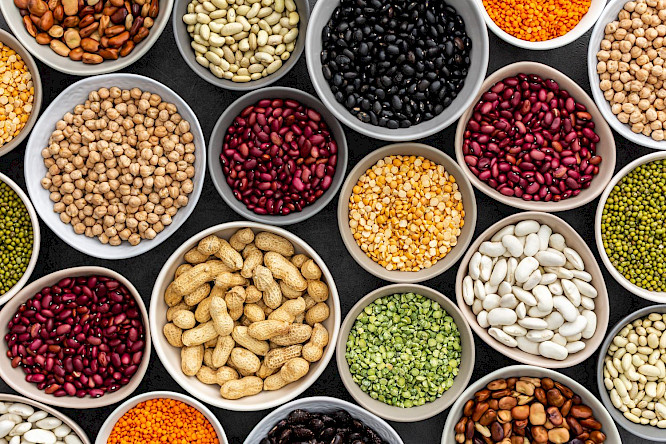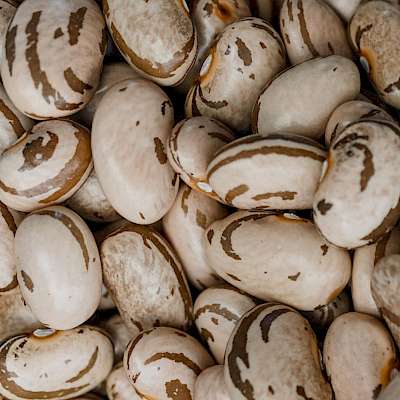Round, speckled, colourful or plain, the sheer diversity of beans is something to behold. When TABLE pitched BBC Ideas a story concept in February of this year as part of the University of Oxford Social Sciences Division’s call for video pitches, we were especially struck by the visual potential of numerous colourful legumes. But this was only a small part of the reason beans stood out to us as a natural video star.

Beans are celebrated as an excellent source of protein, but they also contribute fibre and micronutrients to our diets that are crucial for our bodies’ functioning. Because of this nutrient content, they have been adapted into a wide variety of products that have been increasingly replacing meat on our plates (although it’s worth pointing out that some, like tofu, have been around for thousands of years). But beyond meat substitutes, beans have historically been central to iconic dishes from most cultures around the world – from the classic beans on toast in the UK to dal and chapati in India to black beans and rice in many regions of Latin America. So wherever you live, you can find the inspiration to incorporate more beans into your diet in a delicious and nutritious way.
As if that weren’t enough, beans also pack an environmental punch; they are known for their ability to fix nitrogen through bacteria in their root nodules. The benefit of this process means that soil where beans are grown or have been grown (such as a cover crop) is higher in nitrogen, which lessens the need for artificial inputs like nitrogen fertilisers both when growing these legumes, and when growing the subsequent crop. Fertilisers can leach into waterways, resulting in increased pollution, and they continue to release greenhouse gases into the atmosphere even after their energy-intensive production, transport and application, so this is not an inconsequential swap. Additionally, beans are frequently very resilient and, like most plant-based alternatives, use far less land and water than animal-based sources of protein.
The process of going back and forth with producers from BBC Ideas was a really positive one. They – and most of the general public – don’t engage with food systems conversations on a daily basis as TABLE staff do, so we were challenged to think about what would be the most interesting details to include. Ultimately, we could have filled a feature-length film about all the intricacies of beans, but for this project it was key to boil it down to a four- to five-minute script. It was a fascinating practice for us, as a team who usually produce longer reports and full podcast episodes, to be extremely efficient in our communication.
Are beans the hero we’ve been waiting for? Just as there isn’t a Superman waiting out there to save us from the climate crisis and ever present social and financial inequity, the bean alone is, sadly, not going to be our sole saviour, delivering us to a sustainable food future. We have to be our own heroes; each of us has a role to play. The solutions we will need to fix our food system will be as varied and vibrant as beans themselves.
